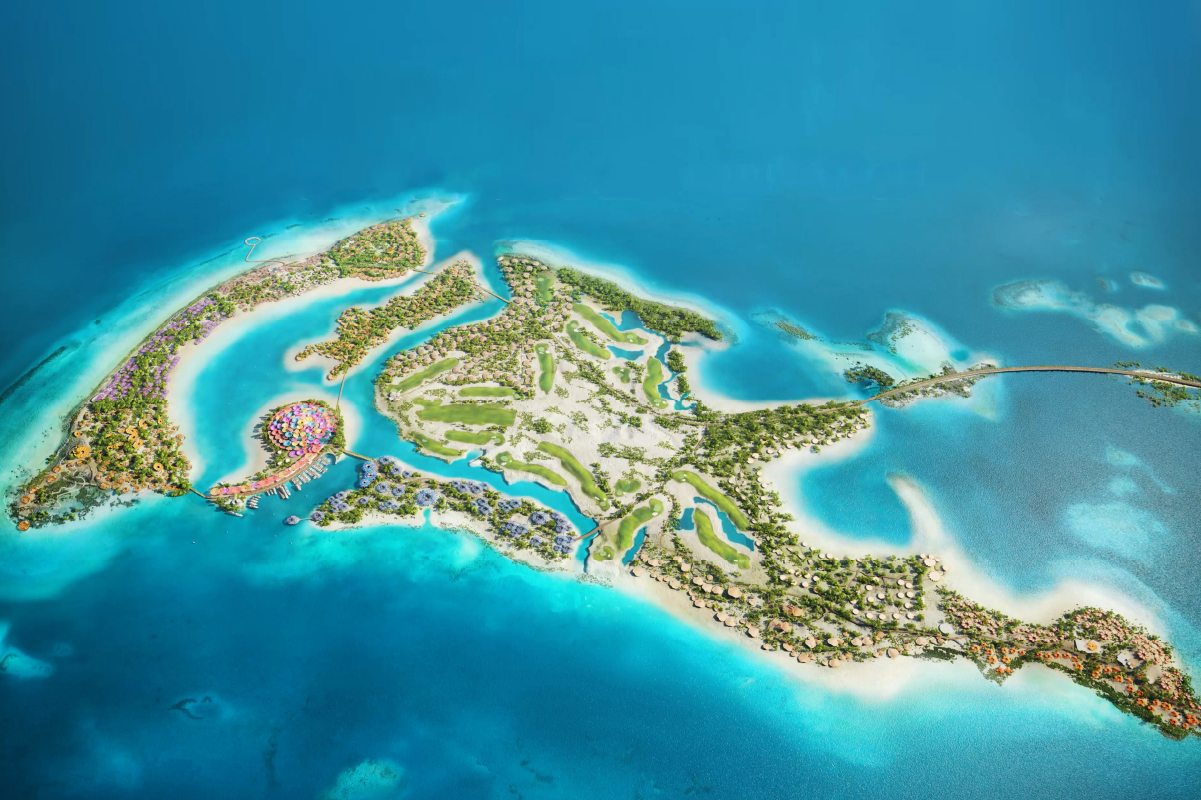Paving the Path to Regenerative Luxury Travel

Skift Take
This sponsored content was created in collaboration with a Skift partner.
As the travel industry grapples with critical environmental challenges, it’s becoming increasingly clear that sustainability is no longer the avant-garde, and "doing no harm" is no longer enough. There's a growing recognition that we can, and must, do better. Amidst a plethora of marketing buzz and PR around sustainability, this calls for a sharper focus on substantial, tangible actions rather than mere rhetoric.
It's in this context that the concept of regeneration surfaces, an approach that aims to rebuild and restore rather than simply preserve. It's a response to a call for action and an evolution of thought and strategy where travel doesn't just mean enjoying the world's wonders but contributing to their betterment too.
As Skift Research has shown, today's travelers are making choices that reflect their concern for the environment. This change in mindset is driving a wave of innovative projects focused on restoration. Among them, Red Sea Global (RSG) — a property developer owned by the Public Investment Fund of Saudi Arabia — has captured industry attention with its aim to carve out a new niche that fuses luxury travel with regenerative practices. Positioning itself at the intersection of tourism and environmental regeneration, the company is currently advancing two projects, The Red Sea and Amaala.
“Our primary research in 10 key feeder markets has shown us that travelers are aware of their environmental impact. They’re more discerning about visiting places in a way that aligns with their values, without compromising on excellence, " said Tracy Lanza, group head of global brand development at Red Sea Global. "We recognize this thirst for a better way to travel, and we understand that to achieve this, we must go further than providing sustainability-focused products. To do this, we have set ourselves the aim of achieving a 30 percent net conservation benefit at each of our two destinations, The Red Sea and Amaala, by 2040. We want to help show what a better future for travel could look like,” she continued.
Setting a New Standard for Luxury Destinations
The Saudi developer is aiming to create a model that combines the charm of upscale travel with the conscious need to rejuvenate and improve the environment. For example, The Red Sea is not meant to be just a high-end resort destined to become a playground for the affluent, but rather an initiative that seeks to improve the ecological state of the region.
“The Red Sea will deliver 100 percent renewable energy 24/7, becoming the world’s largest destination to run solely on clean power, powered by sunlight, day, and night. All 750,000 solar panels are installed at the five solar farms for Phase One, and Amaala is on track to be powered the same way. To avoid over-tourism, we’re also capping annual visitors to The Red Sea at one million, and 500,000 at Amaala,” Lanza said.
Phase One of the project includes the opening of three hotels this year, with another 13 set to open by 2024. The upcoming hotels include the St. Regis Red Sea Resort (designed by Kengo Kuma & Associates), Nujuma (a Ritz-Carlton Reserve), and Six Senses Southern Dunes, both designed by Foster + Partners. The Red Sea International Airport, running entirely on renewable energy, is also set to be operational in 2023. Initially serving domestic flights from Jeddah and Riyadh, the airport plans to start operating international services by 2024, with Dubai being the first overseas destination.
But the developments aren't just limited to infrastructure. The company has announced the launch of its three new subsidiary brands — WAMA, Galaxea, and Akun — to enhance the destination's recreational offerings, providing water sports, diving, and adventure activities to visitors.
“Akun, meaning 'to be' in Arabic, is rooted in adventures over land. Guests will experience biking in the desert dunes, hiking up dormant volcanoes, and tracing nomadic paths to the valley of the wolves. WAMA is about water activities, such as kayaking in our mangroves populated with rare nesting birds and hundreds of indigenous fish, sailing, paddle boarding, and water sports. Galaxea is about discovering the wonder of the underwater world. Our archipelago is home to the world’s fourth largest coral reef, and guests will have the chance to discover shipwrecks and spot turtles, dugongs, dolphins, sharks, fish, and rays in a responsible and gentle way,” Lanza said.
While each brand promises unique experiences, they share a common thread of commitment towards inclusivity and accessibility. For example, Akun will offer activities specifically tailored for parents who have children with disabilities. The destination will also offer bespoke therapeutic retreats for parents and caregivers and require all diving instructors to be Adaptive Support Diver qualified.
“We believe accessibility is a key part of regenerative tourism. Projects like The Red Sea and Amaala will make the unique coasts and natural landscapes of Saudi Arabia accessible to visitors in a way that was not previously possible. They play a fundamental role in positioning the Kingdom as a leading global destination for sustainable and luxury travel,” Lanza said.
Translating Commitment into Action
While it's relatively straightforward to articulate dedication to regeneration, it's another matter to turn pledges into practical impact. Bridging the gap between concept and reality can pose a challenge.
RSG’s approach is to ensure that environmentally conscious choices are built into the fabric of the guest experience. Electric vehicles for guest transport, wave-powered boats, solar farms for electricity, and support for local farmers via one of the Middle East's largest nurseries are some of the initiatives in place.
“We’ve made simple changes on behalf of the guest, so it isn’t a conscious choice they need to make. Instead, they can expect an experience that aligns with their values. Travelers need to feel connected to the destination they’re in, from interacting with the locals to escaping off the beaten path. To be able to do this without having to factor in potential carbon impact will allow guests to truly explore and relax in a meaningful way,” Lanza said.
Looking ahead, RSG’s vision extends beyond environmental regeneration to include the uplifting of local communities and economies. The developer is putting its commitment into action through community-focused initiatives, both at the national and international level. Activities include local market days, the establishment of a Farmer’s Cooperative, and unique, locally focused experiences for guests, such as visits to family-owned mango farms and spa treatments with essential oils from the surrounding landscape.
With the creation of an estimated 120,000 jobs and a projected $8.79 billion contribution to the local economy once fully operational, Red Seal Global appears to be creating ripple effects that extend beyond tourism.
“Both our current and future projects will be rooted in a commitment to putting people and planet first and in line with national and international sustainability targets such as the Saudi Green Initiative Goals and United Nations’ SDGs,” Lanza said.
She continued, “As responsible development visionaries, and as a cornerstone of Vision 2030, we understand our integral role in helping drive progress towards the goals set out in 2016. To achieve this, we’re focused on helping create economic opportunities for the people in the Kingdom of Saudi Arabia and actively enhancing its rich environmental and cultural heritage.”
While these plans are undoubtedly ambitious, the true test will be in their implementation and impact. As the company forges ahead with its projects, the tourism industry, environmentalists, and future guests will be watching closely to see how its regenerative claims translate into reality, and what they mean for the local environment, community, and guests.
For more information about Red Sea Global, visit redseaglobal.com.
This content was created collaboratively by Red Sea and Skift’s branded content studio, SkiftX.





